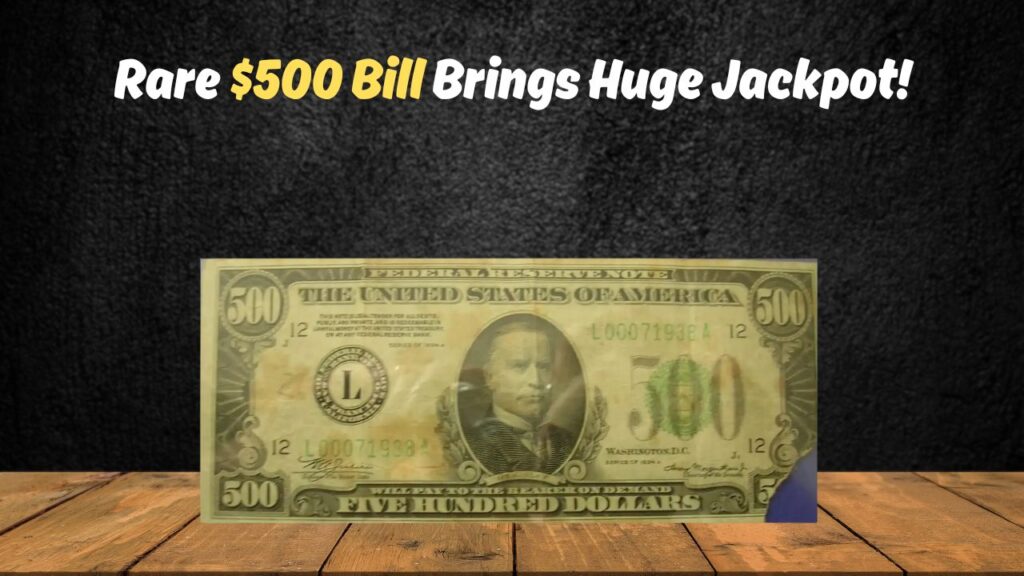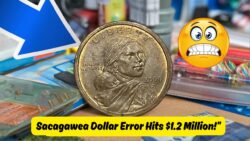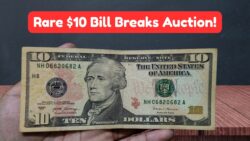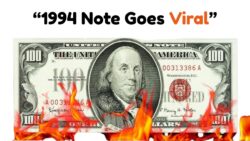$500 Note – In an incredible twist of fate, a rare $500 bill discovered inside an old family safe deposit box has turned out to be worth over $75,000 to collectors. What seemed like an old forgotten banknote has now captured the attention of numismatists across the globe. Such finds are not only financially rewarding but also carry a unique historical charm that connects modern owners to America’s rich monetary past. Let’s explore why this $500 note is so valuable, what makes it rare, how collectors determine the value, and how you can check if you have one too.
History Behind the $500 Bill
Though no longer in circulation, $500 bills were once printed and used in large financial transactions. They featured prominent figures like William McKinley and were last officially printed in 1945.
Key Historical Facts:
- First issued in 1860s as interest-bearing notes
- Commonly issued in Series 1918, 1928, and 1934
- Featured U.S. President William McKinley on most later versions
- Officially discontinued in 1969 due to lack of use
These high-denomination notes were primarily used between banks, corporations, and the federal government. Most were eventually destroyed by the Treasury when they were pulled from circulation, making surviving examples exceedingly rare.
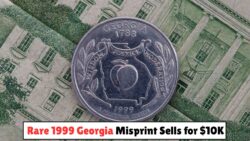 This 1999 Georgia Quarter With Misprint Just Hit $10,000 at Auction – Still in Circulation!
This 1999 Georgia Quarter With Misprint Just Hit $10,000 at Auction – Still in Circulation!
What Made This $500 Note So Valuable?
The $500 note found in the old safe deposit box turned out to be a 1934 Series Federal Reserve Note in near mint condition—one of the most sought-after issues.
Value-Boosting Factors:
| Feature | Details |
|---|---|
| Series Year | 1934 Series – rare and highly collectible |
| Condition | Crisp, uncirculated condition |
| Serial Number | Low serial number – starting with 0000 |
| Federal Reserve District | Issued by the Atlanta District – rare variant |
| Paper Quality | Original fibers intact, no stains or creases |
| Rarity Level | Fewer than 1000 known to exist |
| Auction Demand | Sold via private collector auction |
| Final Price | $75,200 USD (July 2025 auction) |
These features dramatically increased the note’s value. Even a worn or creased $500 note could be worth $1,500–$5,000 depending on demand.
Where Are These Notes Still Found?
While most $500 bills have vanished, they occasionally surface in places where old currency was stored and forgotten—such as safe deposit boxes, attics, estate boxes, or antique shops.
Common Places You Might Find One:
- Old family safes or deposit boxes
- Inherited estate documents or briefcases
- Antique furniture with hidden drawers
- Private collections of deceased relatives
- Rare currency shows or flea markets
In the case of this $75,000 discovery, it was tucked neatly in a sealed envelope labeled “savings 1952,” within a bank’s vault that hadn’t been opened in decades.
Tips to Identify a Valuable $500 Note
Not all $500 bills are worth a fortune, but several features can help determine if one has significant collector value.
Look For:
Condition Checklist:
- No major tears or holes
- Bright ink and visible paper texture
- Crisp edges, no folds
- Centered printing and sharp serial numbers
Rare Characteristics:
| Feature | Rarity Impact |
|---|---|
| Star Notes | Extremely rare and valuable |
| Low Serial Numbers | Start with “0000” or are palindromes |
| Unusual Districts | Some Federal Reserve Districts are rarer |
| Misprints | Misaligned prints or ink errors valued |
| Gold Certificates | Earlier versions (pre-1930) worth more |
A certified appraisal from a currency grading expert or submission to PCGS Currency or PMG can confirm authenticity and assign a proper grade.
Should You Sell or Hold?
If you’re lucky enough to find one of these notes, you have two primary options: hold for long-term appreciation or sell to a collector or auction house.
Pros of Holding:
- Value may increase over time
- Grows interest among collectors
- Historical memorabilia appeal
Pros of Selling:
- Immediate cash return
- Strong demand in collector market
- Auction houses handle marketing and bidders
Most owners opt for professional appraisals followed by auction submission. In the case mentioned above, the note was sold via Heritage Auctions, one of the top rare currency platforms.
Real-Life Examples of High-Value Finds
There have been several incredible $500 note discoveries in recent years. These cases prove that rare currency finds are still happening.
Notable Sales:
| Year | Series | Condition | Sale Price | Note Details |
|---|---|---|---|---|
| 2023 | 1934A | Uncirculated | $64,500 | Star Note from New York district |
| 2024 | 1928 | Fine | $18,000 | Found in estate chest in California |
| 2025 | 1934 | Crisp | $75,200 | Found in old safe deposit box – Atlanta |
| 2022 | 1934 | Very Fine | $11,000 | Auctioned in Kansas |
These examples show that condition, rarity, and story behind the note all contribute to value.
The discovery of a $500 note in a forgotten safe deposit box is a reminder that valuable historical treasures still exist, sometimes right in our homes. With the right combination of rarity, preservation, and collector interest, these notes can command tens of thousands of dollars at auction. If you come across an old high-denomination note, don’t discard it—get it professionally appraised. You might be holding a small piece of financial history worth a fortune.
FAQs of $500 Note
1. Are $500 bills still legal tender?
Yes, they are legal tender but are no longer printed or circulated.
2. Where can I sell a rare $500 bill?
You can sell through rare currency auctions, online platforms like eBay, or directly to collectors or currency dealers.
3. How can I verify if my $500 note is real?
Look for watermark, texture, and have it verified by PMG or PCGS Currency for authenticity.
4. Are $500 notes from 1934 worth more than those from 1928?
Not necessarily—1928 is older, but value depends more on condition, rarity, and serial numbers.
5. What is a star note in currency?
A star note replaces a misprinted bill and has a star in the serial number—these are much rarer and highly valuable.

